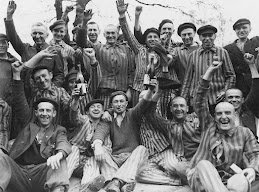PROMINENT CHINESE HUMAN RIGHTS LAWYER SENTENCED FOR STATE SUBVERSION
What happened: On Monday 28 January 2019, China’s second Intermediate People's Court in the city of Tianjin sentenced prominent human rights lawyer Wang Quanzhang, 42, to four and a half years in prison for state subversion. It also deprived him of political rights for five years and of his legal license. Wang had defended opposition’s political campaigners, victims of land seizures and police torture, and followers of the banned spiritual Falun Gong movement (a group following traditional medical and self-cultivation practices developed in the early 1950s by members of the Chinese medical establishment). He worked for the now-shuttered Fengrui law firm in Beijing that was well known for its advocacy work.
Wang’s legal journey: Wang was charged with subverting state power in January 2016. He then spent nearly three years in detention without access to his family or lawyers. The trial was conducted in late 2018 behind closed doors with journalists and foreign diplomats barred from entering the courthouse. On 26 December 2018 the hearing ended and the verdict was announced 3 weeks later. Wang’s sentencing was lighter than expected for a charge that carries a maximum punishment of life in prison, and there is hope that his pre-trial detention would contribute to his sentence, which means he could be released as early as 2020. The UN Working Group on Arbitrary Detention, together with several NGOs and groups of activists, stated that Wang's detention is arbitrary, meaning that under international law he should never have faced a trial in the first place.
Wang’s wife fight: Wang's wife, Li Wenzu, was banned from attending the trial and confined to her home in Beijing. She supported him through it all: she shaved her head in protest against her husband’s detention and tried to lodge a petition criticizing Wang's treatment with a Beijing court. In April 2018, Li Wenzu attempted to march 100 kilometres to the facility where her husband was being held to raise awareness but was stopped by the police before she arrived. She was forcibly returned to Beijing and placed under temporary house arrest with her five-year-old son.
The "709" crackdown: China's crackdown on lawyers, known as the "709" crackdown because it began on 9 July 2015, has been seen by activists as a sign of a growing intolerance of dissents under President Xi Jinping. Wang Quanzhang was the last lawyer awaiting a verdict in connection with the Chinese government’s mass crackdown, which targeted nearly 250 human rights lawyers and activists. Trials for rights activists in China often prolong over years while the accused are held under harsh conditions, torture, and they are often denied the right to hire their own legal representation and receive visits from family members.
Giulia Mizzon


Comments
Post a Comment